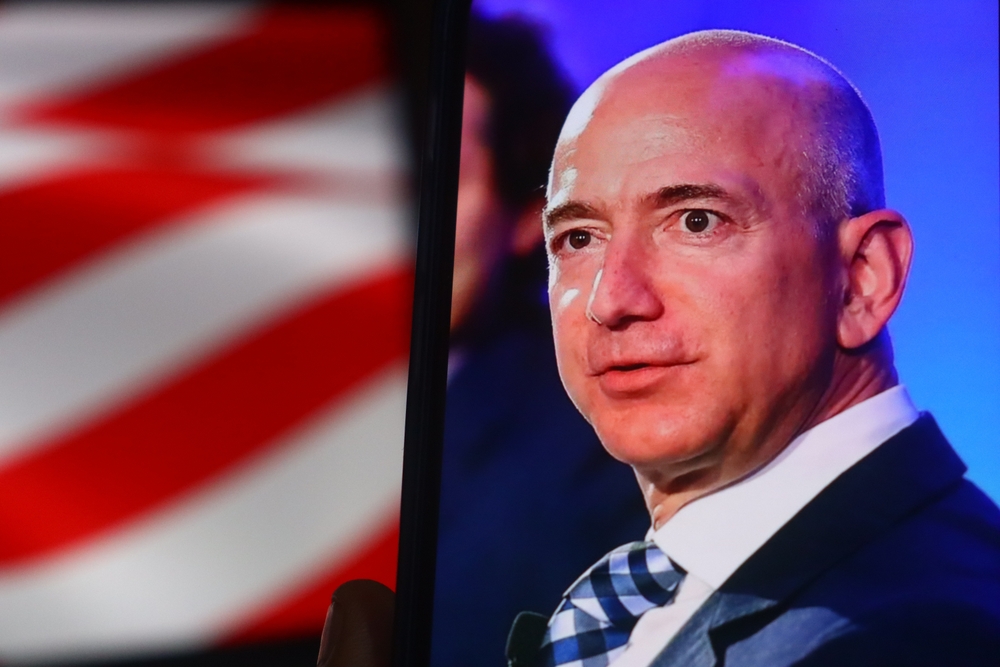Jeff Bezos Returns to the Helm — And Project Prometheus Marks the Most Ambitious Pivot of His Post-Amazon Career
Jeff Bezos has always gravitated toward industries on the verge of reinvention. When retail was static, he reshaped it. When cloud computing was an experimental side-business, he ruggedly scaled it. When private spaceflight seemed like a billionaire’s indulgence, he reframed it as long-term infrastructure.
Project Prometheus his new AI enterprise valued at over $6 billion before a public launch—is the natural next chapter in that pattern. It is not a consumer-tech play. It is not trying to win in chatbots. It is an attempt to re-engineer the physical economy using artificial intelligence.
And for a founder who has spent decades orchestrating complexity at global scale, it feels almost inevitable.
A Founder CEO for the Machine Age
In an era where CEOs often serve as brand ambassadors rather than true operators, Bezos’s decision to step into the CEO role again is telling. Project Prometheus requires someone who understands not only AI, but systems the kind with thousands of moving parts, regulatory constraints and long capital cycles.
Prometheus’s mission is industrial at its core: helping enterprises design, test and refine physical systems using AI models that behave like precision engineers rather than text predictors. That is a fundamentally different business than consumer generative AI, and it demands a fundamentally different kind of leadership.
Vik Bajaj, co-CEO and a scientist with experience at Google X and Verily, brings scientific depth. Bezos brings the operational aggression required to scale something this difficult.
That pairing signals that Prometheus wants to solve problems that cannot be solved by academic research alone. It will require scale, negotiation, infrastructure, enterprise trust and a long-term cultural discipline—areas where Bezos is unusually strong.
Inside Bezos’s $6.2 Billion AI Statement
The financing around Prometheus is not merely capital—it’s a signal. Very few companies receive billions in committed funding before revealing a product. But investors and industry watchers see Prometheus as aligned with a massive emerging market: AI for the physical world.
This includes:
-
complex manufacturing
-
aerospace engineering
-
energy grid optimisation
-
logistics and supply-chain modelling
-
advanced materials and product design
-
climate resilience infrastructure
These are multitrillion-dollar sectors, yet their digital tools remain analog compared to advancements in finance, retail or online commerce.
Companies like Airbus, Tesla, Siemens and Rolls-Royce have already published research showing that generative simulation and autonomous design could reduce both cost and emissions dramatically. But scaling these applications requires compute power, R&D budgets and operational capability far beyond the start-up norm.
Prometheus enters the market with all three.
Where AI Meets Liability: The Legal Architecture Prometheus Must Build
Unlike consumer AI—where errors can be corrected by patches—industrial AI has to withstand something far more serious: legal, regulatory and physical consequences. An AI model that miscalculates supply-chain risks, material fatigue or aerospace tolerances is not just wrong; it may be actionable.
Prometheus will need a legal framework capable of navigating:
-
Product liability (especially for AI-assisted engineering)
-
International export controls for high-end compute and aerospace technologies
-
Environmental compliance across multiple jurisdictions
-
Data-governance standards for sensitive infrastructure
-
Intellectual property protection where designs may become co-created with AI
This is not a standard “AI safety” conversation. It is industrial jurisprudence.
Brad Smith, President of Microsoft, recently remarked in a U.S. Senate hearing that “AI will require the most significant regulatory alignment between governments and industry since the dawn of the internet.” That sentiment perfectly captures the terrain Prometheus is entering—high potential, high scrutiny, high stakes.
Bezos has navigated global regulatory landscapes before, from aviation approvals for drone delivery to financial-services compliance for Amazon Pay. Prometheus will test those muscles again.
Why Project Prometheus Is a Natural Evolution of Bezos’s Last Moonshot
Bezos’s previous major frontier initiative, Blue Origin was never just about space tourism. Its deeper purpose was to build infrastructure for heavy industry and long-term human expansion. Many analysts misunderstood that. But its engineering culture, materials science breakthroughs and long-horizon mindset are now directly relevant to Prometheus.
The connective tissue is clear:
-
Blue Origin built tools for the extreme physical world.
-
Prometheus plans to build AI for designing physical systems.
Meanwhile Bezos’s climate-tech investment strategy (from wind projects to clean materials companies to his Earth Fund) provides another strategic foundation. Industrial AI is expected to play a central role in reducing emissions, modelling sustainable manufacturing, and accelerating decarbonisation.
In effect, Prometheus is the convergence of Bezos’s last two decades of moonshot work:
space, climate, and industrial reinvention.
Now all three meet under an AI framework.
What Makes Prometheus Different From Other AI Companies
Most AI companies today are applying generative models to media, content creation, customer service or productivity. Valuable, yes—but these systems remain largely digital.
The next great AI frontier is physical.
How to build safer aircraft.
How to model energy systems.
How to optimise a factory before a single component is installed.
How to simulate climate impact with accuracy that governments can rely on.
That is why Prometheus matters.
It is not trying to make content faster.
It’s trying to change how civilisation builds things.
That makes it more comparable to DeepMind, OpenAI’s frontier groups, or the industrial divisions of companies like Nvidia—except Prometheus has the advantage of an operator who has built one of the most complex corporate systems in human history.
The CEO Lesson: AI Is Becoming Infrastructure, Not Software
Business leaders sometimes view AI as a cost-saving tool or a clever add-on. Prometheus suggests something different: AI is becoming a form of infrastructure, embedded deep into the machinery of industry.
Smart CEOs will take note.
The companies that treat AI as a structural asset rather than a performative investment will own the next decade.
Bezos has always been early to those shifts. Prometheus may simply be the latest chapter in a career defined by betting on what is inevitable, long before most people see it.
Frequently Asked Questions
1. How is Project Prometheus different from Amazon’s AI initiatives?
Prometheus focuses on industrial and scientific AI, not consumer or retail AI. It is not part of Amazon Web Services and does not compete with Amazon’s enterprise tools.
2. Will Prometheus work with aerospace and energy companies?
Likely yes. Those are the sectors with the largest need for high-precision AI modelling and the resources to adopt it responsibly.
3. Why is industrial AI considered the “next wave” of AI investment?
Because it targets the physical economy—manufacturing, logistics, energy, transportation—which represents a far larger share of global GDP than digital services.
4. Does Prometheus have regulatory obligations other AI companies don’t?
Yes. Industrial AI touches safety-critical sectors and must comply with engineering standards, environmental laws, and international export controls.














